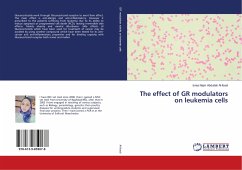Type 1 diabetes (T1D) can impact the integrity of the central nervous system (CNS). However the reason why T1D affects CNS integrity remains to be elucidated. The general hypothesis tested that the onset of diabetes induces first dysregulation of the hypothalamus-pituitary-adrenal (HPA) axis and subsequently hypersecretion of glucocorticoids which then renders the brain more vulnerable to metabolic insults causing damage and concomitant cognitive disturbances. Here it is demonstrated that hyperresponsiveness of the adrenal glands is the primary event leading to hypercorticism in diabetic mice. Furthermore, diabetic animals present hippocampal pathology suggesting mild neurodegeneration. Concurrently, cognitive impairments related to spatial memory were found. Finally, normalization of the hippocampal dysfunction and the impaired cognition of diabetic mice were achieved using a glucocorticoid receptor (GR) antagonist. These data indicate that glucocorticoids play a causal role in diabetes neuropathology. Moreover, the GRs are crucial for the mechanism that underlies the disruption of hippocampal integrity and the impairment of cognitive performance.
Bitte wählen Sie Ihr Anliegen aus.
Rechnungen
Retourenschein anfordern
Bestellstatus
Storno








